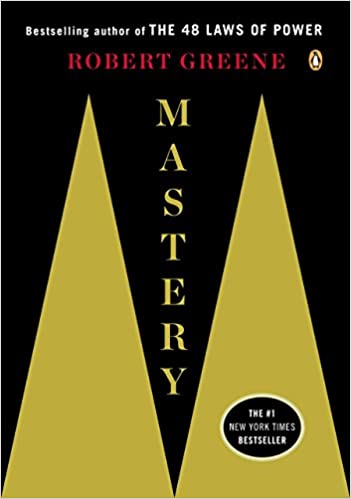Is 10,000 hours of practice all it takes to become a master?
The answer is a definitive, “No!” The 10,000-hour rule has become a rule of thumb despite it not being based on scientific proof. Worse, it’s set unrealistic and exhausting expectations. But there are other tried-and-true ways to get success.
Welcome to Snapreads! Today, we’re bringing you why most successful entrepreneurs don’t believe in the 10,000-hour rule and what they do instead. This is the real key to achieving success!

Mastery
by Robert Greene
⏱ 15 minutes reading time
🎧 Audio version available
And what if we told you that the person who made the original study actually went on to debunk it?
According to the New York Times Best Seller book written by Malcolm Gladwell, Outliers: The Story of Success, what it takes to be an expert and a master performer is just 10,000 hours of practice. Gladwell’s 10,000 hours strategy became so popular in the business world that it became a commonplace rule to follow.
Gladwell referred to a study by Anders Ericsson, who observed violin students studying at a music academy in Berlin. Ericsson found that the most accomplished students shared one thing in common: they had put in 10,000 hours of practice by the time they turned 20 years old.
Gladwell further examined the Beatles, saying that before playing in Hamburg in the early 1960s, they had put in 10,000 hours of practice.
Bill Gates is another example, who supposedly put in 10,000 hours of programming before he co-founded Microsoft.
So, the 10,000-hour rule was born: 10,000 hours of practice and you’re guaranteed to become an expert in whatever given field. That meant putting in about 417 days’ worth of hours, three hours a day, for 3,333 days, which mounted up to a little over nine years.
The rule is catchy, irresistible, and more or less dramatically untrue. Anders Ericsson was one of the first people to protest this rule.
Quality Over Quantity
The 10,000-hour rule focuses on the quantity of practice put into something, but successful entrepreneurs know that no matter how much you practice at something, unless the practice has quality, you’re just wasting your time.
If you want to get better at a sport, would you achieve as much success practicing and experimenting on your own for Gladwell’s three hours a day as you would achieve practicing with an expert for three hours?
There is no contesting this. The expert will give you feedback, tips, and tricks and help you improve your form, technique, and confidence.
Gladwell’s rule focuses on quantity, and every entrepreneur who’s been around for some time knows that not all practice is equally helpful.
Deliberate Practice
This is what successful individual people use instead. Deliberate practice, which focuses on the irreplaceable quality of time practicing, not the number of hours. In a nutshell, deliberate practice means that in order to get better at something and someday reach expert status at it, you deliberately develop specific abilities, identify weaknesses, work on these weaknesses, use the help of experts, and push yourself out of your comfort zone.
In his counter-study, Ericsson says,
“This distinction between deliberate practice aimed at a particular goal and generic practice is crucial … because not every type of practice leads to improved ability. You don’t get benefits from mechanical repetition, but by adjusting your execution over and over to get closer to your goal.”
Ericsson explains that the quantity practice Gladwell preaches is useless because the effects from “mere experience” of practicing a skill are dramatically different from the benefits of deliberate practice.
Get Help from Experts
Without feedback, you’ll never reach the “top ranks.” There is no exception. You must get feedback from experts, coaches, and mentors who will give you specific ways on how to improve.
This adds to the deliberate practice that Ericsson spoke about, which focuses on specific skills needed to master an overall skill.
Everyone agrees that deliberate practice can sometimes be incredibly hard and time-consuming. That means that 10,000 hours is something you can surpass, or depending on you, require less than them.
Feedback Loops
In Peak: Secrets from the New Science of Expertise, Ericsson makes one thing very clear. Feedback is one of the most important keys to success, and many entrepreneurs agree with him.
They see through the rule’s tempting attractiveness. They know that 10,000 hours appeals to the innate human desire for cause-and-effect relationships. Cause: put in 10,000 hours into anything; effect: congratulations, you’re an expert.
As Gladwell would put it in one of his most popular terms, the “tipping point” of success—it isn’t 10,000. You’ll find that other people play a much larger part.
What feedback loops do is create a way to accurately pinpoint where you go wrong, spot your errors, and then move on knowing what to do to improve your skills and learning routine. It gives you the crucial information you need for “adaptive measures,” and thus, helps you help reach the master levels of learning.
Feedback loops actually help you reach your objective faster because you’re not dilly-dallying at the wrong points.
It Promotes Autopilot Mode
Why nearly everyone has worked to debunk the 10,000-hour rule is because it heavily promotes automation—going on autopilot. But if you truly want success, you’re not just clocking in and out with a timecard.
As one person put it, if you’re practicing at golf—and aren’t particularly talented from the get-go—and you make the same exact mistakes every time, you’ll be putting in 10,000 hours of practicing that error without knowing any better and your game won’t improve. You’ll still suck at golf, but you’ll be a little older.
This is actually the part where experts and amateurs stand out from each other. Experts know that it’s not acceptable to hit what they call the “OK plateau,” which is what William James, an expert on the subject, says is “any sequence of mental action which has been frequently repeated tends to perpetuate itself.”
After too much automation, at this point, you stop growing and you start stalling at proficiency levels.
Avoiding relaxing and going on autopilot mode is how you get to “genius” level of proficiency.
Ten thousand hours aren’t the magical words. In fact, after 50 hours of practicing something, whether it’s at a sport or a hobby, people reach a “good enough” stage of performance levels. This is the point where they are going through the motions.
People who settle for the mediocrity of the 50 hours no longer feel that intense need and drive to keep learning. They’re content with breezing through life with what they have already learned. And if they continue to put in practice on autopilot, any improvement they make will be negligible.
Compared to experts, amateurs stand out because they’re happy following instructions. Most people are too busy reacting to the world and their environment that they don’t take charge and act. You only forget about your goals when you turn on autopilot mode and start coasting through life.
Being conscious through your day-to-day decisions brings you several steps closer to reaching your goals.
Success Requires Concentration
Deliberate practice is also needed here. Concentration is a requirement for success, but you can only hold your concentration for so long before you get tired.
That’s human nature. However, if you focus on the specific skills and sub-skills needed, then you’ll get the maximum benefits of practicing and will perform at the top of your game.
Top-down concentration is what successful entrepreneurs do instead of wasting their time. They actively concentrate on the skills they haven’t perfected yet. They concentrate on the moves that aren’t working out and correct them by refining their techniques.
With top-down concentration, you’re at the top because you never stop learning.
Remember, there are no limitations. As much as we want to, there is not one set rule or key to achieving the wild success every entrepreneur wants.
No matter how much success you achieve, there is always going to be room and need for improvement. Every skill, job, and hobby needs hard work, deliberate practice, concentration, and feedback.
What Is Snapreads?

With the Snapreads app, you get the key insights from the best nonfiction books in minutes, not hours or days. Our experts transform these books into quick, memorable, easy-to-understand insights you can read when you have the time or listen to them on the go.


